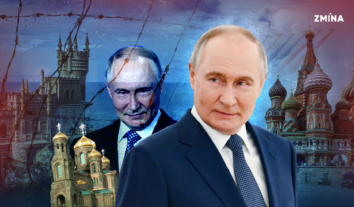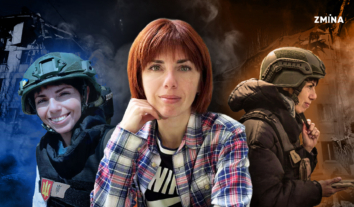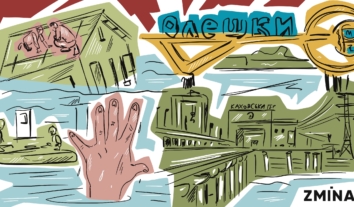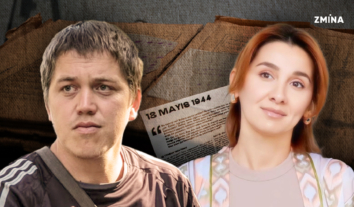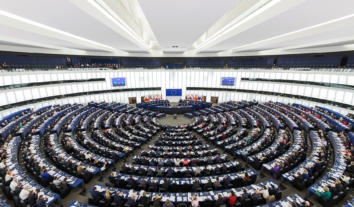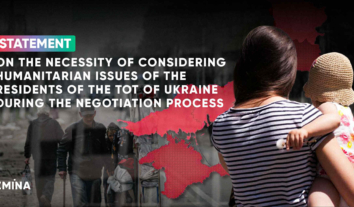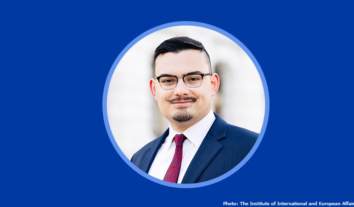A story of Oleksandr Tarapon from Crimea, illegally convicted by Russia
On October 21, 2022, the occupation court of Alushta sentenced Oleksandr Tarapon to 2.5 years in a strict regime colony. He was charged with Article 207.3 (part 1) of the Criminal Code of the Russian Federation, namely, “public dissemination of knowingly false information about the use of the Armed Forces of the Russian Federation and the exercise of powers by state bodies of the Russian Federation.”
The term of imprisonment given to Tarapon by the judge of the occupation court, Oleksandr Zakharov, was six months longer than the prosecutor’s office had requested. On January 17, 2023, the Court of Appeal upheld the sentence.
After that, the man began to be taken to penitentiary institutions – first to Rostov-on-Don, Volgograd, then he spent six months in Khasavyurt and two months in Makhachkala. About a month ago, Oleksandr was transferred to penal colony No. 3 in the Stavropol Territory of the Russian Federation.
All this time, the man was kept in quarantine, and later, Russian authorities promised to send him to the so-called “strict conditions of detention.” Here is his story.
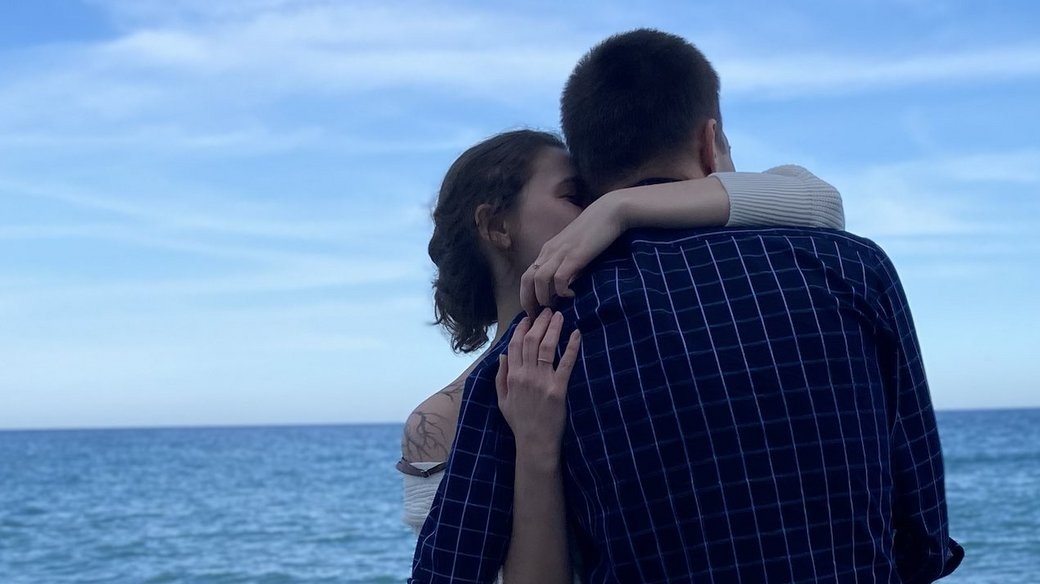 Oleksandr and Adele Tarapon. Photo from the family archive & Suspilne
Oleksandr and Adele Tarapon. Photo from the family archive & Suspilne“At first, we thought that no one supported the war. How can anyone support this?”
After the occupation of Crimea, the Tarapon family and their young daughter stayed in Alushta for family reasons. They learned about the outbreak of a full-scale war in 2022 from relatives and friends who live near Kyiv, says Adele, Oleksandr’s wife. Russian tanks were entering the Kyiv region, and the family was told about it by phone in real-time.
“I am a clinical psychologist by profession. This was my first session with Ukrainian victims. I worked with Sashko’s niece: she was sitting in the basement with her parents, it was dark, tanks were coming, and I was calming her down,” the woman recalls.
For the first month after the full-scale invasion began, Adele and Oleksandr thought that no one in Russia would support it. But later, it became clear that they were wrong. So, Oleksandr bought a printer and started printing anti-war leaflets. In them, he addressed the mothers of Russian soldiers. He included a link to the website “Look for your own” [Ukrainian Internet project to identify captured and killed soldiers of the Russian Armed Forces in the Russian-Ukrainian war of 2022]. He compared the attack on Ukraine to the actions of the Nazis during World War II.
This lasted for about a month. Later, the couple found out that the husband of Adele’s half-cousin was a contract soldier who fought, in particular, near Kherson. He went to kill for money and did not hide it. He told his family, “Wait, I’ll earn more money and come home.”
On the fence of his house, Oleksandr wrote: “A war criminal, a child killer lives here.” He also posted anti-war leaflets nearby. “When they saw it, they called the police and wrote a denunciation against me. They didn’t know exactly who did it. They just wrote about me,” she recalls.
It happened on March 31, 2022. At the time, Adele and Sasha lived at two addresses for safety reasons: Adele rented a house, and her husband lived in her apartment. Since then, security forces have visited the woman.
The police tried to lure her to the apartment where her husband lived, Adele says. For example, they said they needed to “check the meters.” “It was ten o’clock in the morning, and they decided to become utility workers,” the woman says.
Security forces searched the apartment where the woman lived with her daughter. They wanted to find a pretext to open a case under the article on “discrediting the Russian army,” Adele says. The search was conducted according to the rules, with witnesses and a protocol, but Adele was constantly under pressure. They threatened to call the guardianship authorities to take the child away and threatened to kill the dog. They tried to push her, but then she would start screaming, so they stopped trying.
They eventually searched the apartment where Oleksandr lived. The man opened the door to the police himself. They found leaflets in the apartment. The couple was interrogated separately. After that, the man was placed in a temporary detention center for 14 days.
“They said that ‘denazification’ means that we have to find ‘Nazis’ at all costs.”
Then, there were seven-hour interrogations with the head of the investigative committee and the Federal Security Service (FSB). The investigators even picked on me because of a seven-year-old video found in Adele’s possession. It showed a speech by Hitler.
“I study Nazism and genocide. And I still don’t understand how it is possible to erase all human civilized experience and start wanting to kill,” says Adele.
Since February 2020, Russia has banned the use of Nazi symbols or symbols close to them, except in cases where their use “forms a negative attitude towards the ideology of Nazism and there are no signs of propaganda or justification of Nazism.” Even though the video was only needed for analysis, Adele received an administrative penalty.
“They wanted to tie me and Sashko to the Nazis. If they said ‘denazification,’ they had to find ‘Nazis’ somewhere,” the woman says.
Then, Oleksandr was released. They didn’t even choose a preventive measure, so the couple moved freely around Crimea for some time. The trial was postponed, and the first hearing occurred in the summer. The verdict was supposed to be announced in September, but the date was postponed again. It was as if they had been forgotten, says Adele. But in November, Sashko was sent to prison.
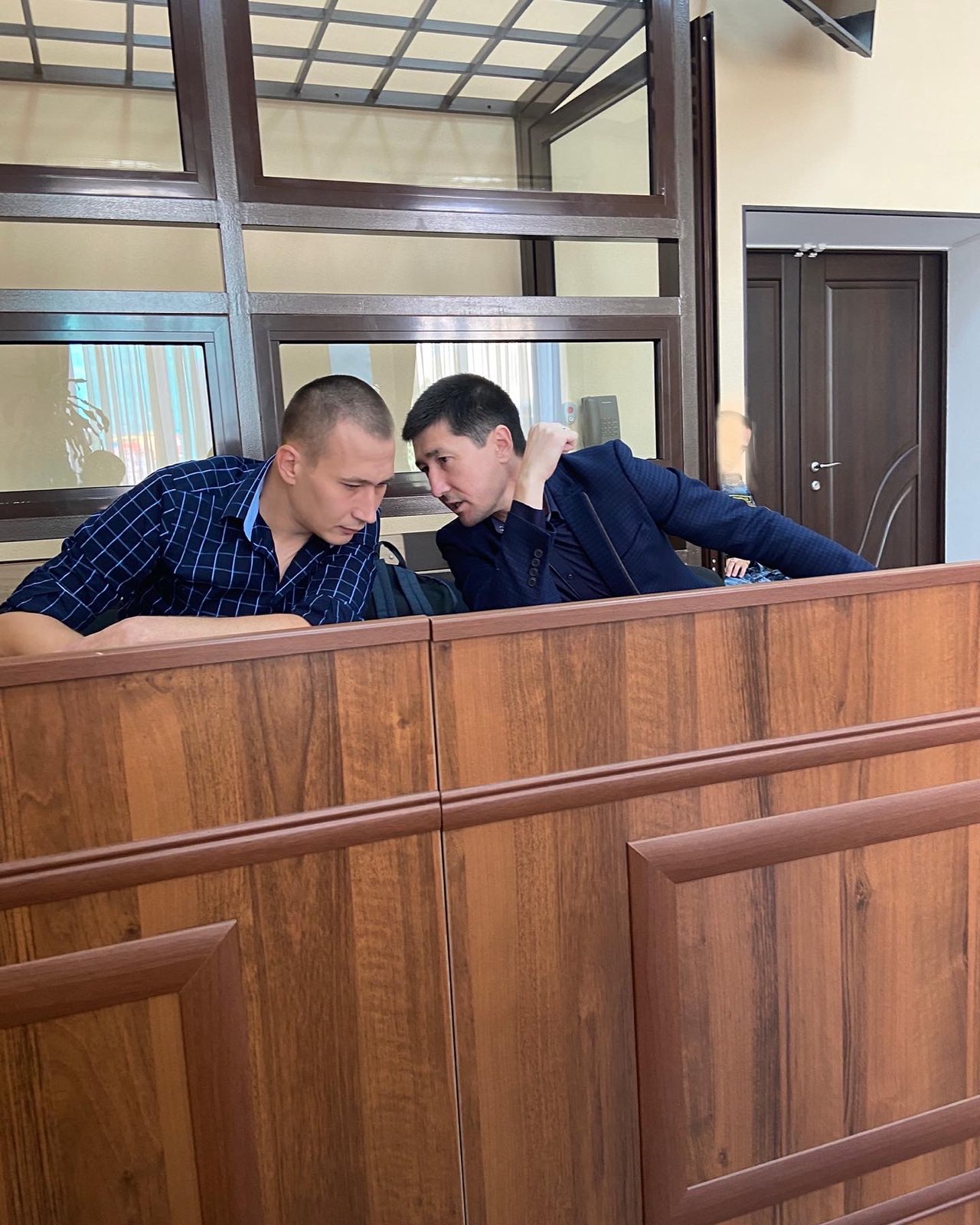 Oleksandr Tarapon in the courtroom (left). Photo: Suspilne
Oleksandr Tarapon in the courtroom (left). Photo: Suspilne“I still have a question: why did he show me anti-war leaflets during the search? I asked him why he didn’t eat or burn them in the bathtub. But Sasha decided to come out with a kind of challenge that he was not afraid of anything,” the woman says.
At the time of Oleksandr’s arrest, neither he nor Adele had a lawyer.
“I was even told that I could not have a lawyer. Ultimately, I found one myself, and it turns out I can. As for Sasha, there were violations from the very beginning. For example, a criminal case has not yet been opened, but investigative actions have already been carried out—violation after violation. But few people care,” the woman explains.
“You are political. That is, by default, you threaten the administration.”
Now, Oleksandr is being held in a high-security colony in the Stavropol Territory. Prisoners say they will send him to “harsh conditions of detention” and that this issue has already been resolved.
“They told him right away in the colony: “Since you have such an article, we will send you to strict detention conditions. For a short time, for nine months”. We thought it was some protocol procedure because of his article. Sasha would be kept in harsh conditions anyway. But the colony staff tried to set him up so that he would be sent to the punishment cell twice, and then he would be sent to the appropriate detention conditions,” the woman says.
According to the decision of the “commission,” in which he was not even taken to the meeting, he was registered in the colony as an “extremist and terrorist,” says Adele. Then, they had to turn him into a “malicious troublemaker.”
Oleksandr was told that if he did not agree to a minor violation, he would be framed for a more severe one, up to and including assaulting a staff member. This means 15 days in the isolation ward. As a result, the man made a deal – he agreed that an officer would enter the cell, and he would be in a T-shirt, without a uniform. This is prohibited during the day. Later, the same violation was recorded for the second time, and he was sent to the isolation ward for ten days.
According to Adele, the head of the operational unit, other members of the colony administration emphasized:
“You are political. That is, by default, you threaten the administration. That means you will be placed in harsh detention conditions.”
Lack of proper medical care
Adele and her daughter have not seen Oleksandr for more than eight months, even though he has the right to see them.
“The head of the police station knows that we have tickets for a date in August, and he has a right to it. And then they start dragging him around the punishment cell. I don’t think I will see my husband again,” the woman says.
For six months, the couple kept in touch through correspondence. Adele says her husband was deliberately put in the basement with people with AIDS, hepatitis, and syphilis. There were no phones there, so they communicated only by letter.
Now, they communicate by phone.
“Fortunately, he has no serious illnesses. But from time to time, he gets cold. Sometimes, he has migraines or a temperature of up to 40. They give him a paracetamol pill for everything, and that’s enough. They treat everyone like that,” Adele recalls.
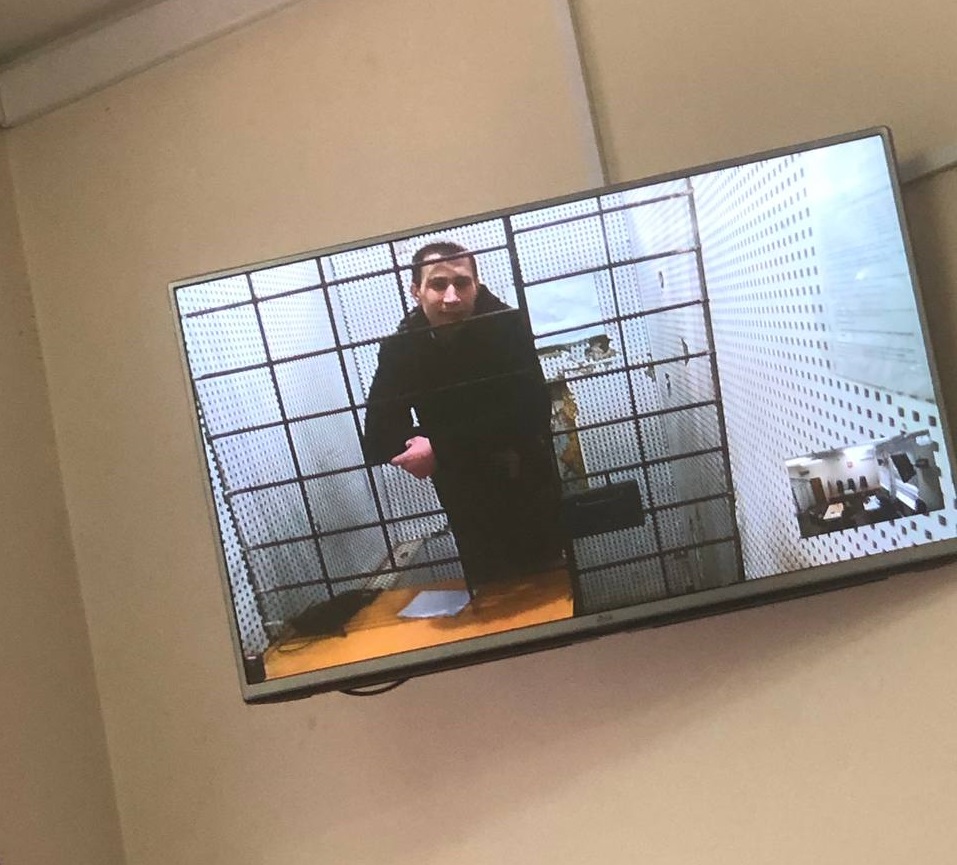 Oleksandr Tarapon. Photo: Suspilne
Oleksandr Tarapon. Photo: SuspilneShe doesn’t know how her husband will endure the harsh detention conditions.
“I thought the publicity was helping. But on the other hand, I’m already afraid that the information, on the contrary, can make things worse. The only thing I’m sure of is that all the documented information will help in the future to appeal the sentence.”
The woman was offered to leave [Crimea] to protect her child. She had already had problems at the kindergarten: they wanted to file a complaint with the guardianship authorities because her daughter did not attend the May 9 parade.
“As the teachers told me, my daughter said: killing people is bad, war is bad. Her father is against the war, so she doesn’t want to participate in the celebration wearing the uniform of people who died long ago. In general, war reminds her of her father in prison,” the woman says.
But Adele remains in Crimea for now because Oleksandr’s mother is ill. If she leaves, she will be left alone. In addition, you can easily send money here, talk to your husband on the phone, and try to help every day.
The article was written within the framework of the project “The List of Gafarov-Shyring: rescue of Crimean political prisoners who are under threat.” The project is implemented with the financial support of the Ministry of Foreign Affairs of the Czech Republic as part of the Transition Promotion Program.
The views expressed in this material belong to the authors and do not reflect the official position of the Ministry of Foreign Affairs of the Czech Republic.

